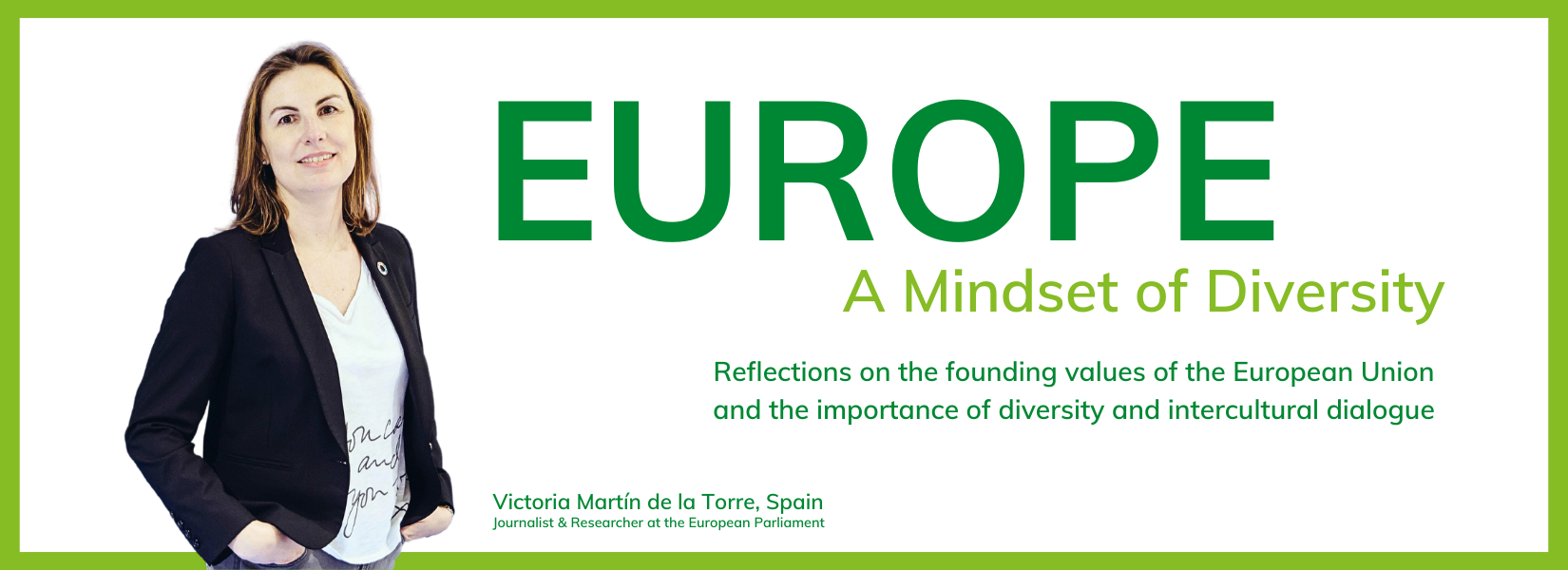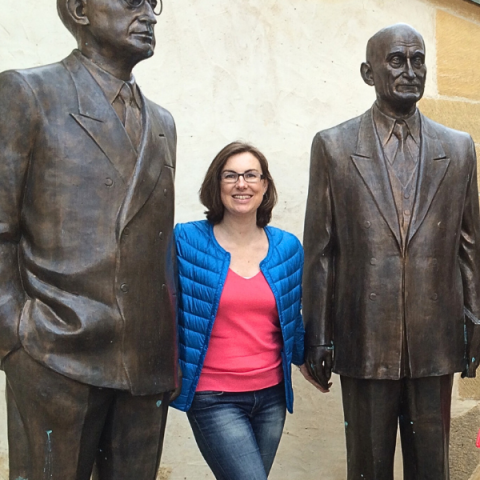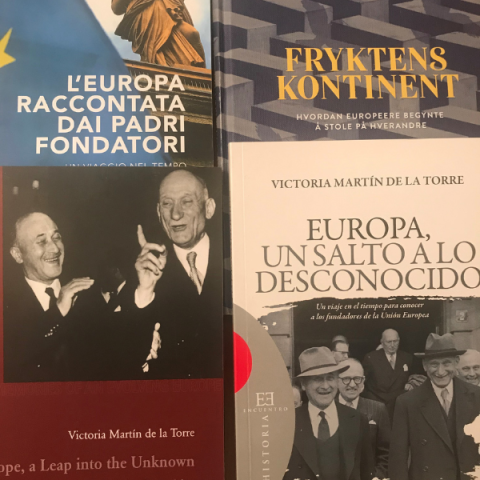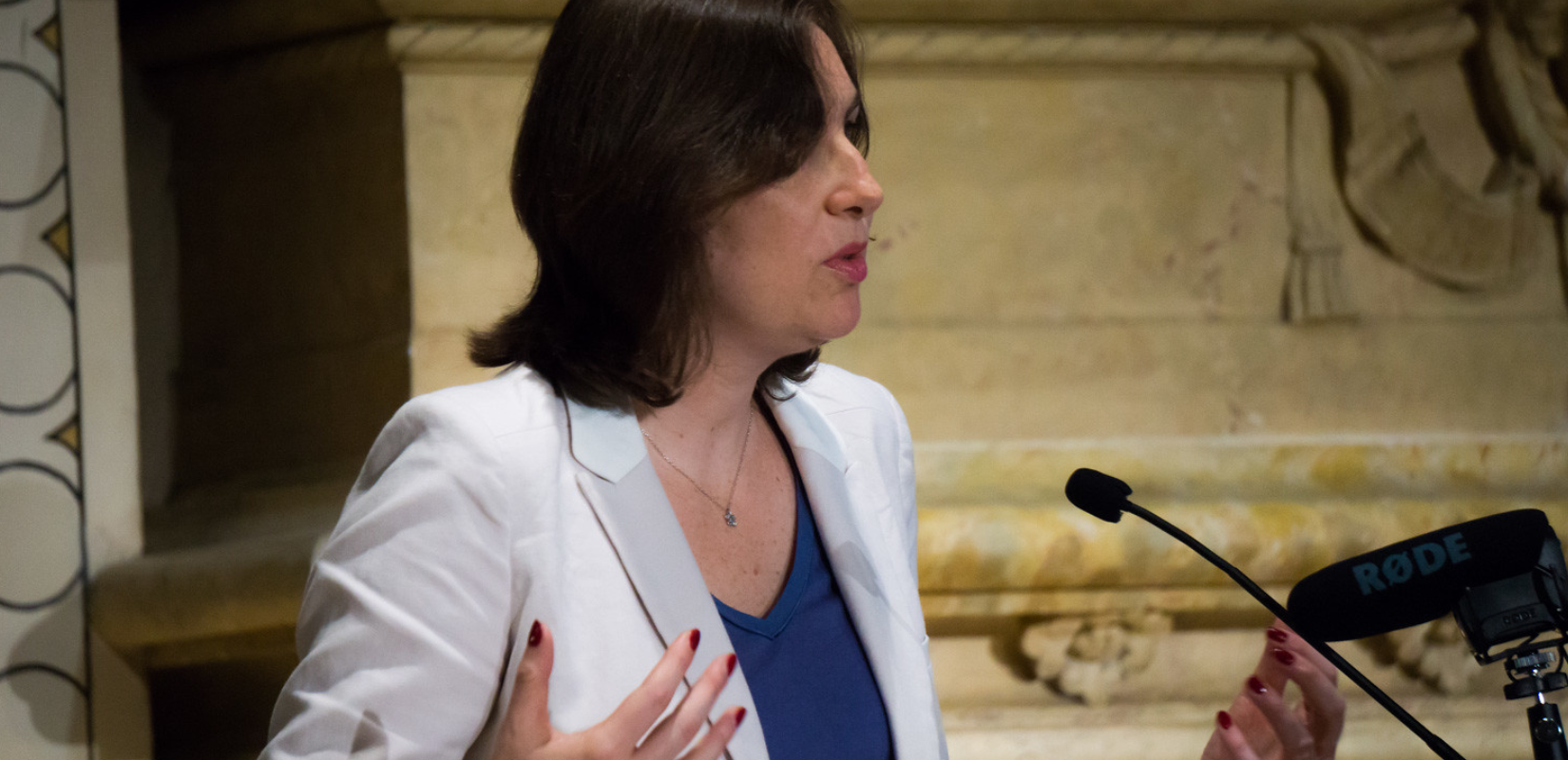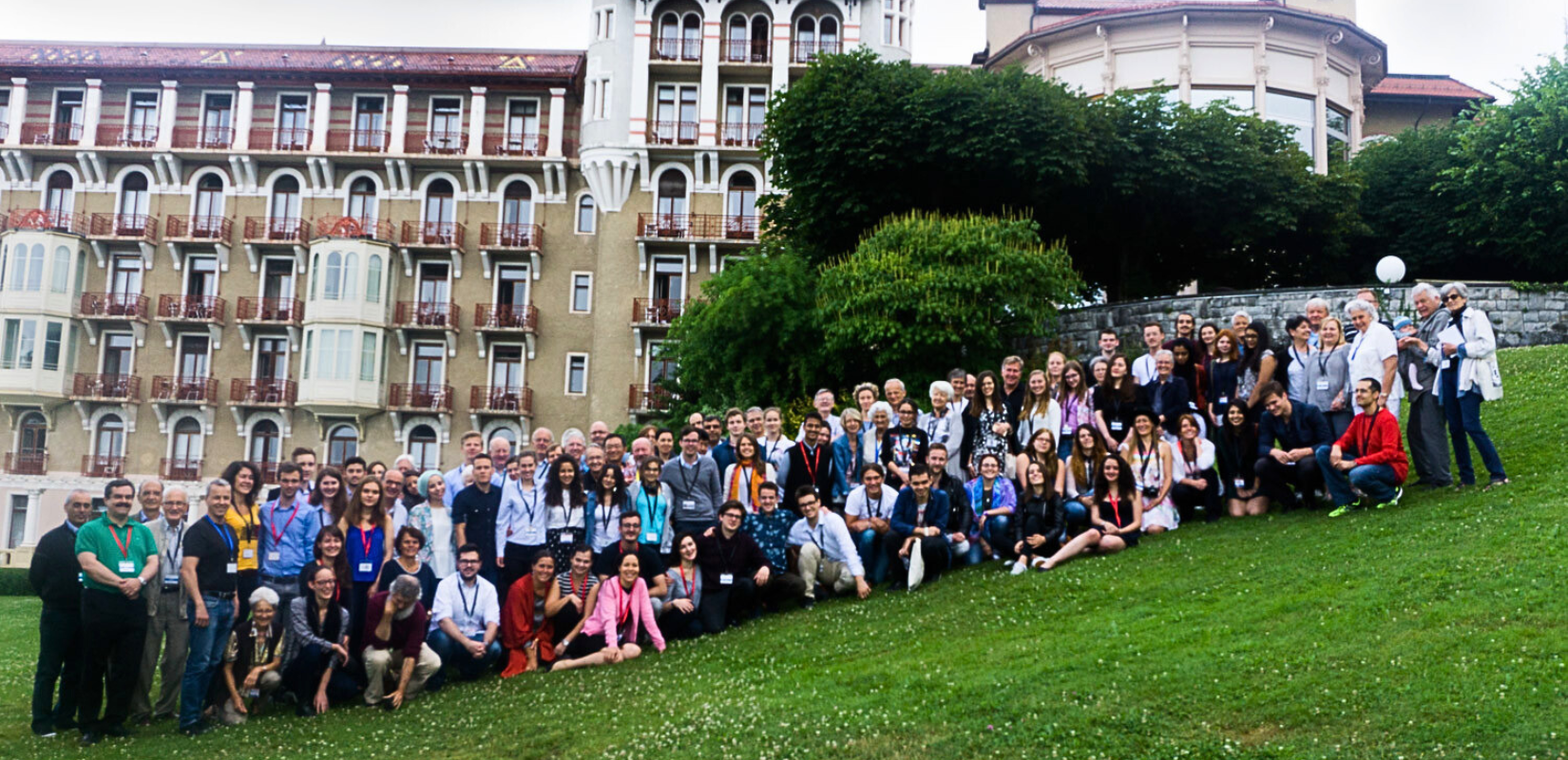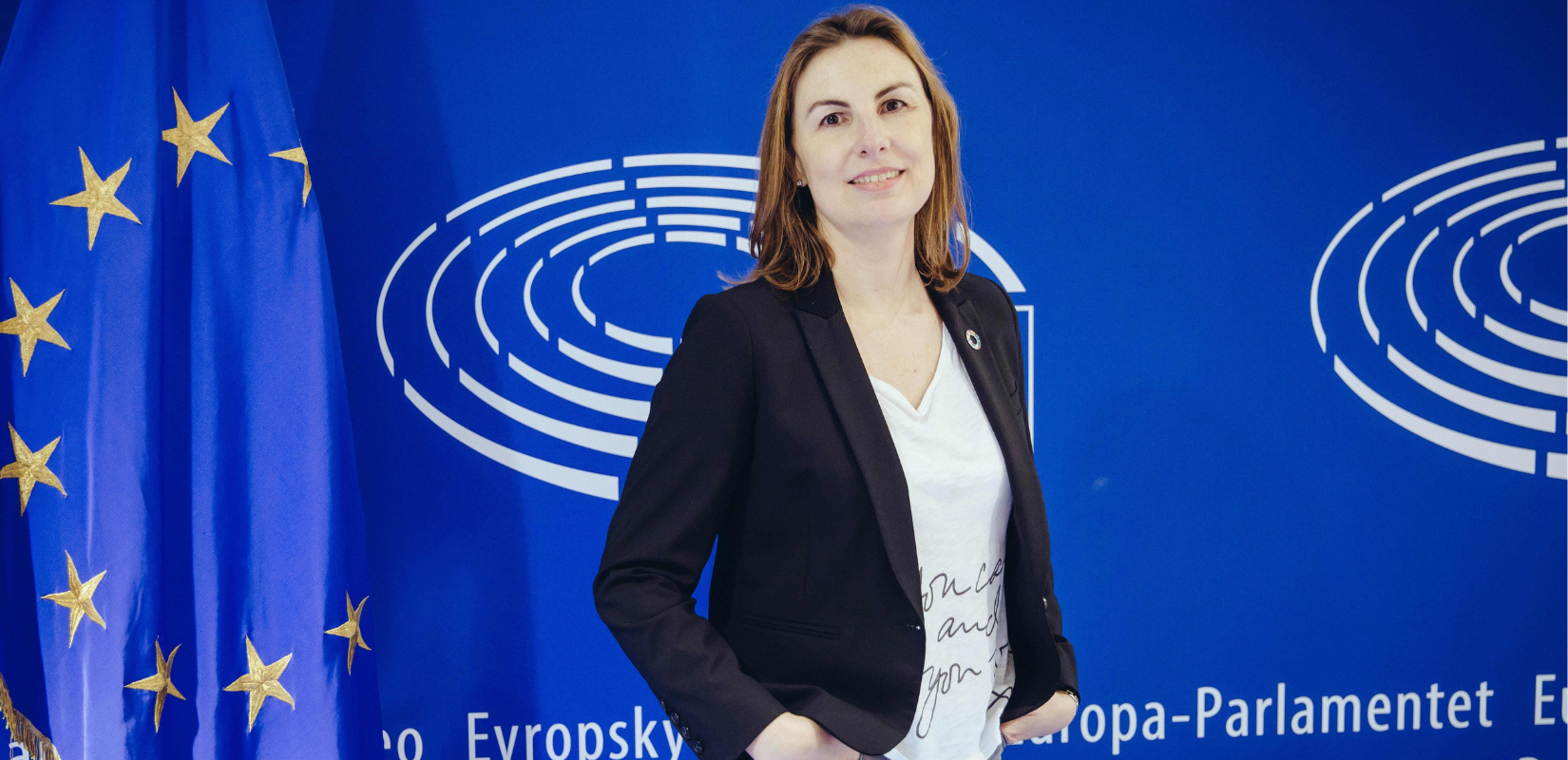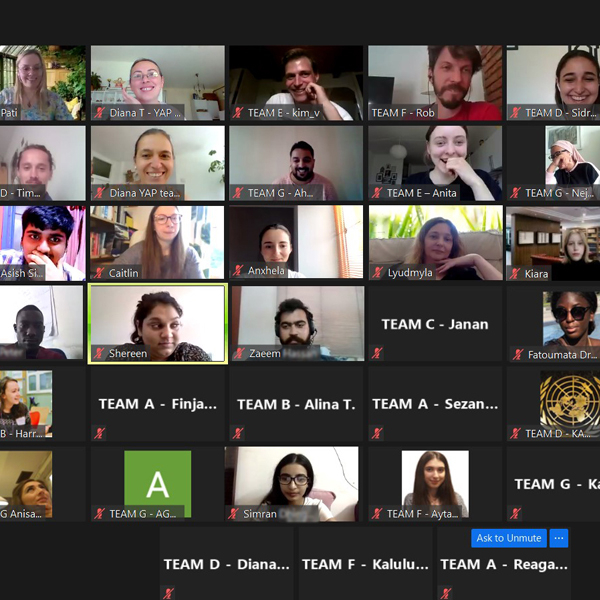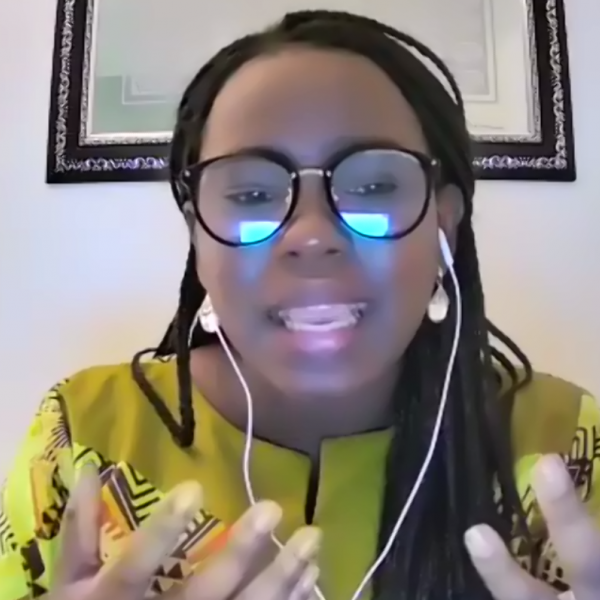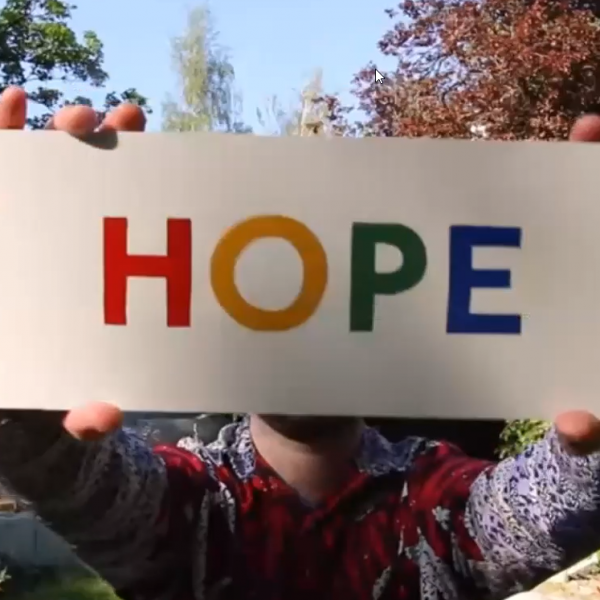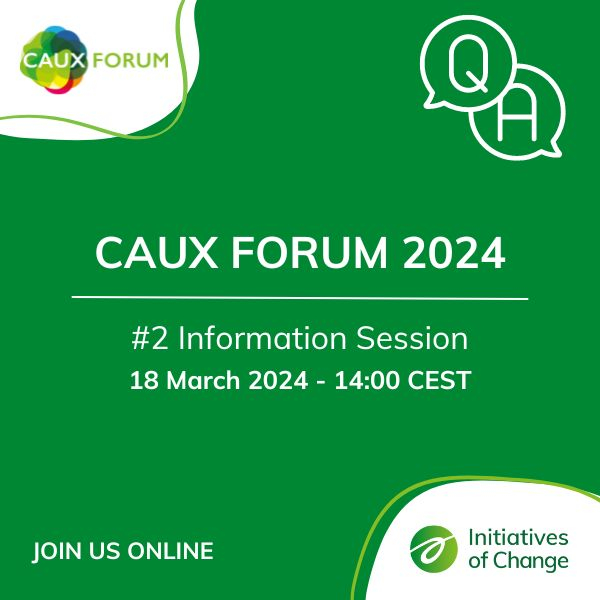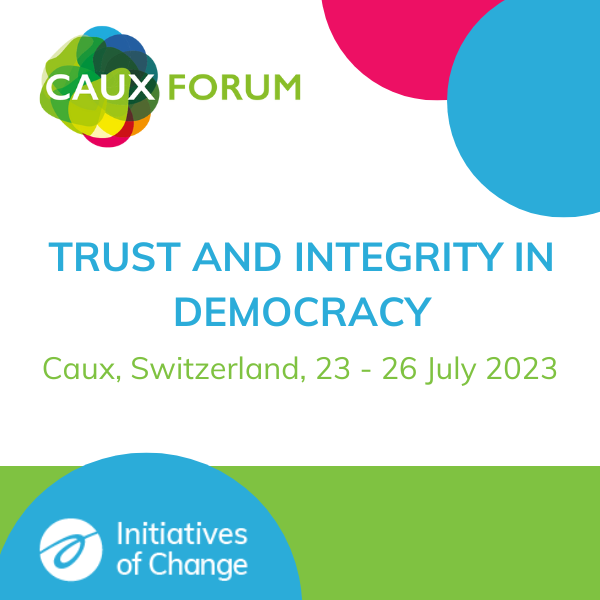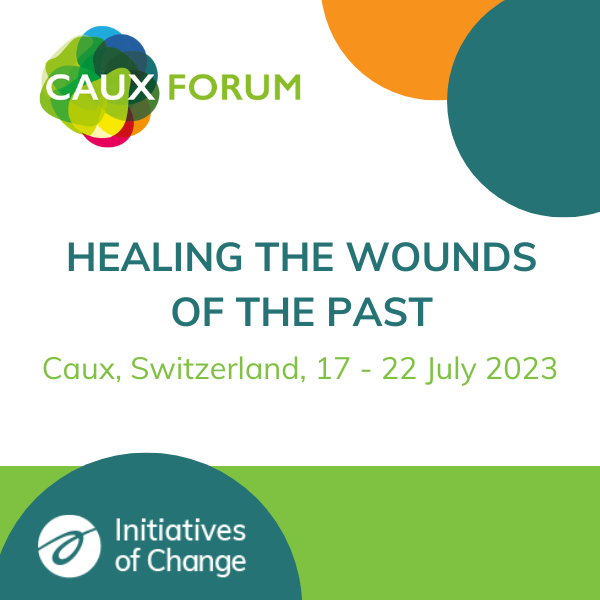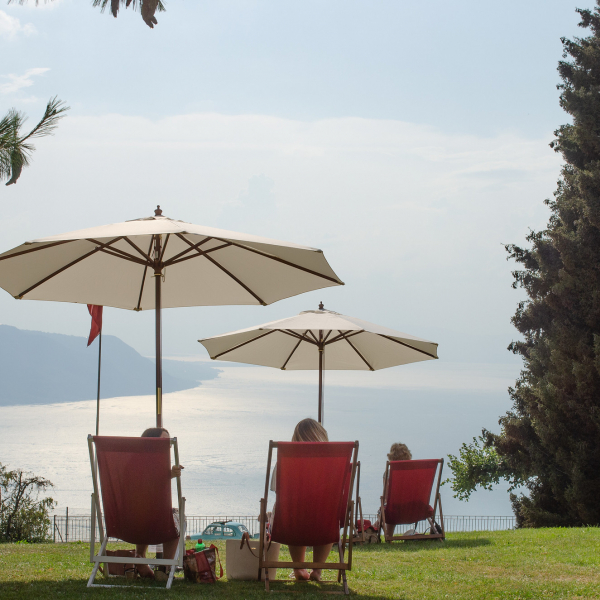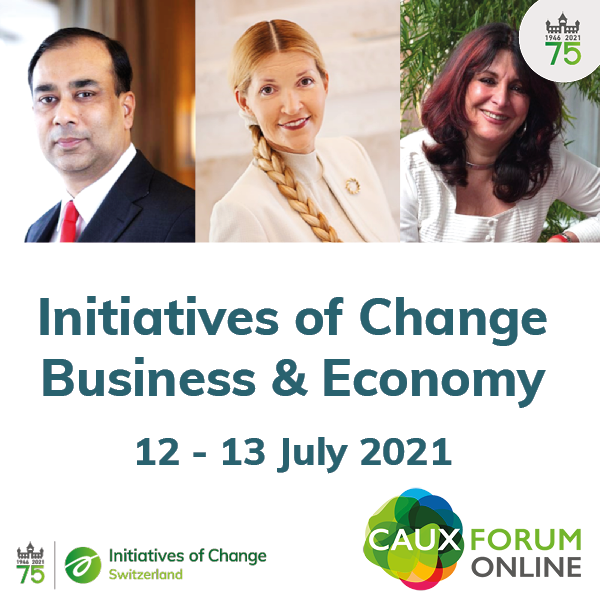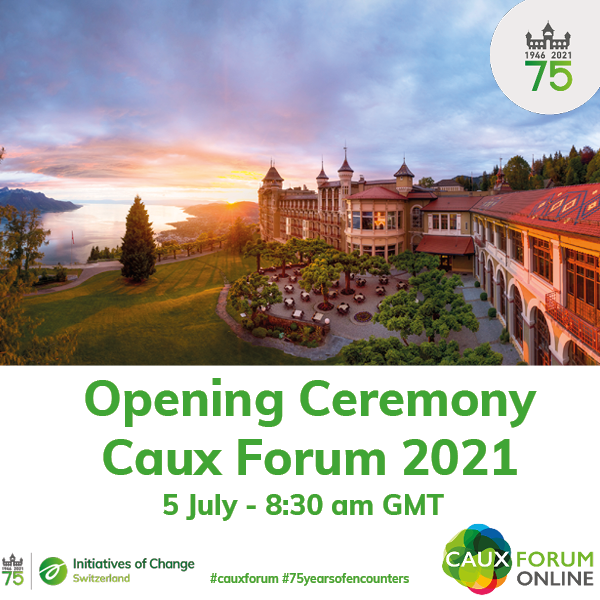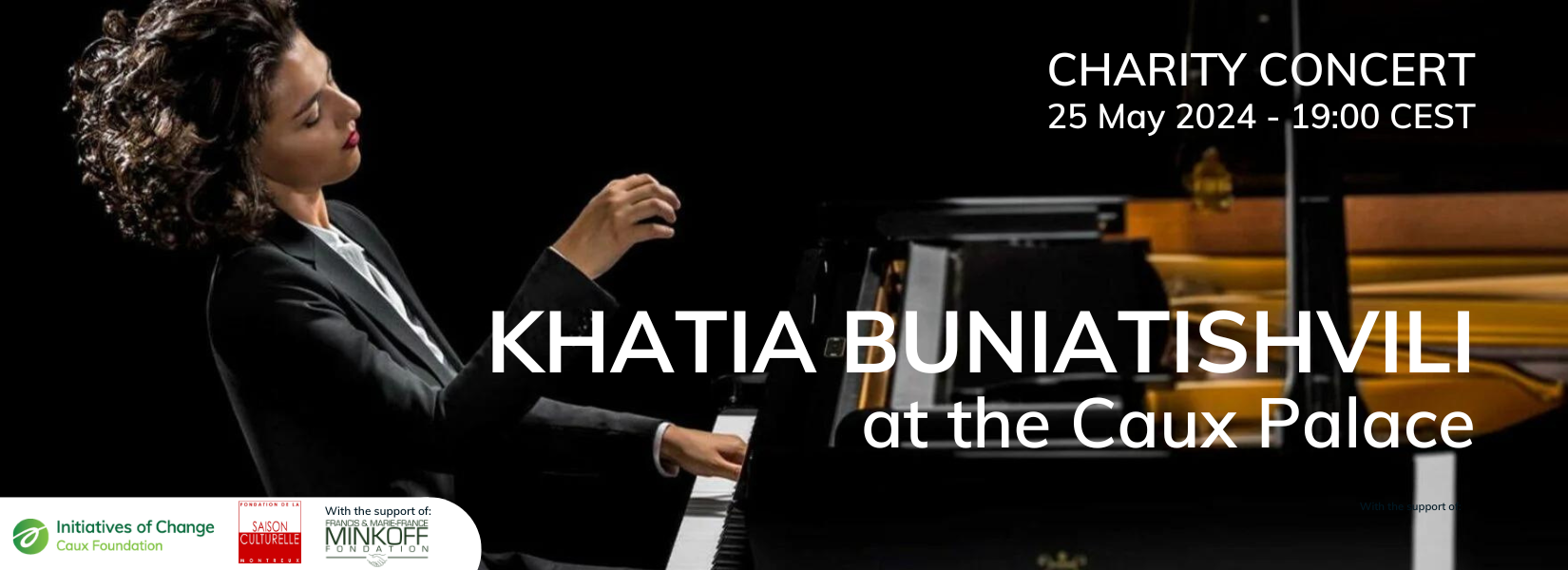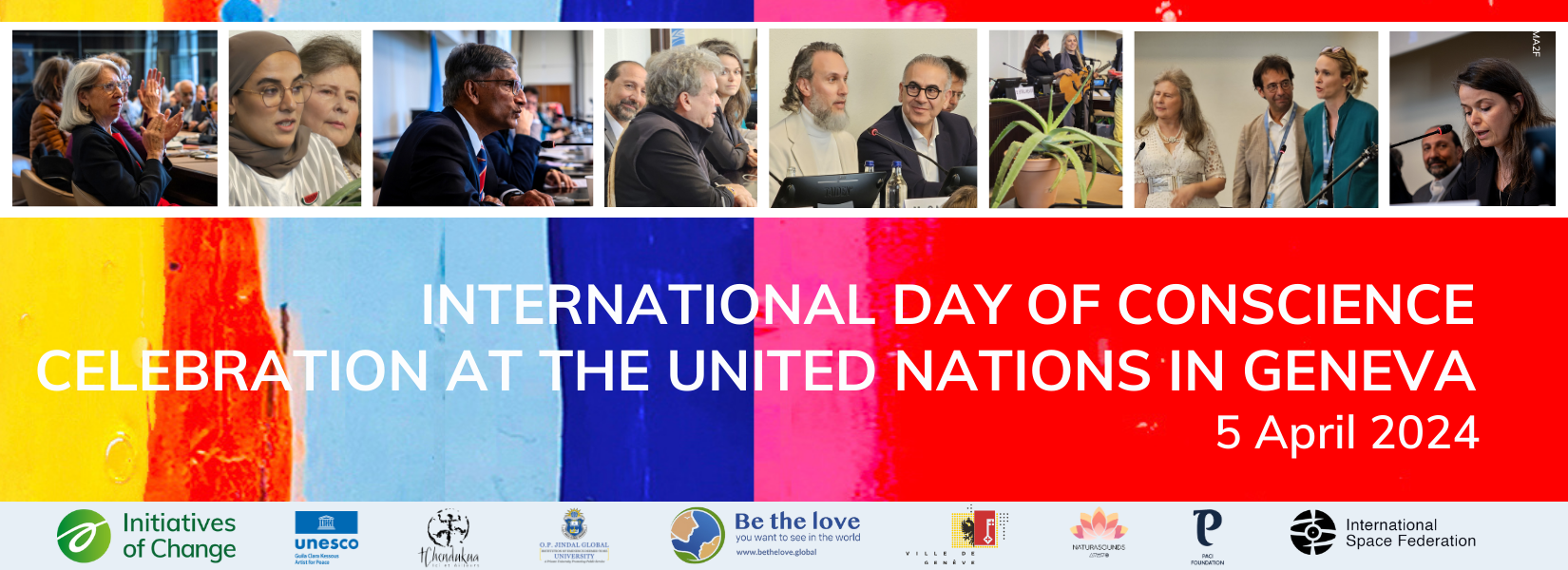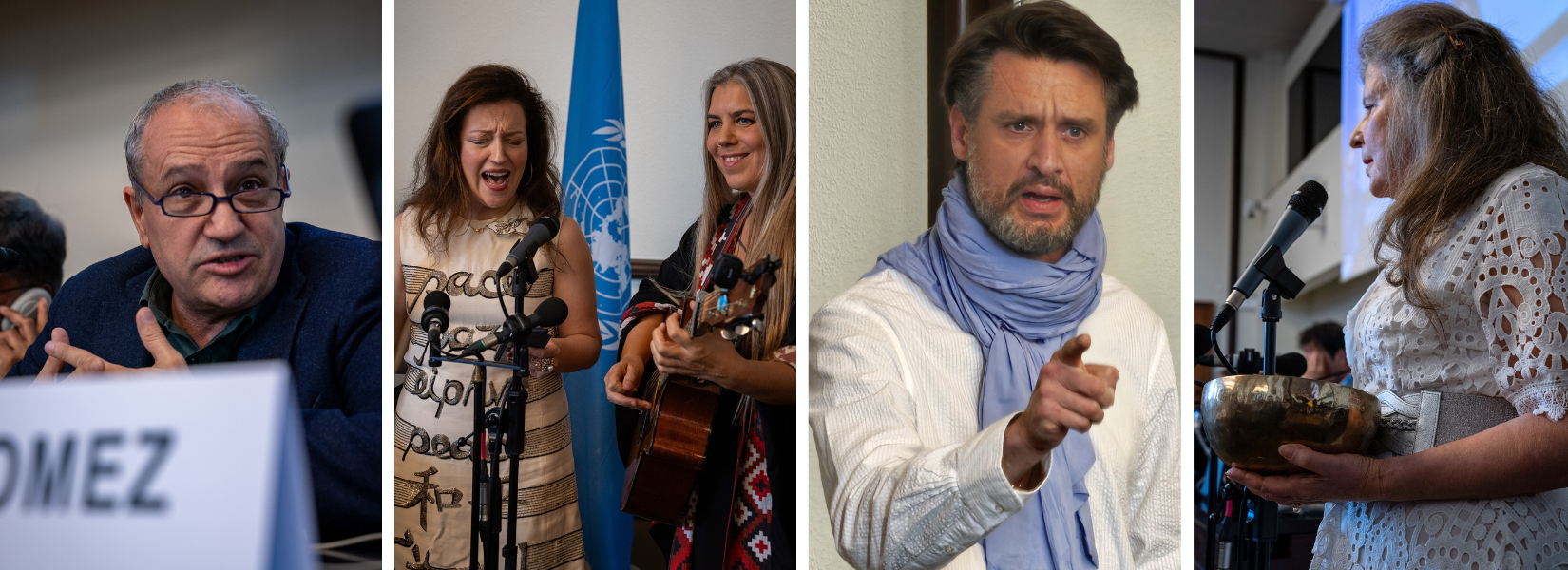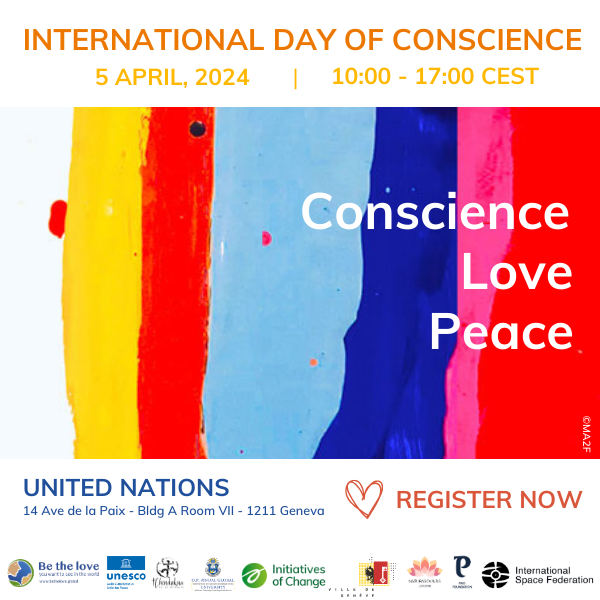Peter Brey
Peter Brey has a long professional background strongly linked to the values Initiatives of Change stands for. He directed the Leenaards Foundation from 2012 to 2023, a philanthropic foundation which seeks to stimulate creative dynamics in the Lake Geneva region and supports initiatives that anticipate, question, and accompany changes in society in the fields of the arts, ageing and health.
Sara Moussa
Sara Moussa is a Swiss-Lebanese student in her third year at HEIG (Haute École d'Ingénierie et de Gestion) in Switzerland. Sara works with our teams as part of her Bachelor's thesis. Her aim is to identify the strengths and weaknesses of our business in the context of our concept of Hospitality for Change, and to explore the various opportunities for improvement. We are delighted to work with Sara to draw on her expertise and recommendations to strengthen our service which will help us to better meet the needs of our customers.
Europe: A Mindset of Diversity
By Mary Lean
30/04/2024
Spanish journalist Victoria Martín de la Torre is passionate about Europe, diversity and interfaith relations. After 15 years as press officer of the Socialists and Democrats group in the European Parliament, and with two books under her belt, she now works at the research service of the European Parliament, which provides academic studies to the Members of the European Parliament, and is currently completing a doctorate on what the post-World War II pioneers of the European Union could teach Europe today.
As a case study, Victoria chose the former Caux Initiatives of Change Young Ambassadors Programme, an intensive training programme for young Europeans who aspire to take an active role in transforming society, with the aim to equip them with the reflective and practical tools to build sustainable change, inspire deeper conviction about Europe and connect them to a supportive network of similarly engaged young people.
When the EU started out, it was known as the European Community, Victoria points out. She explains that the founding fathers drew their definition of ‘community’ from the writings of the 13th century theologian and philosopher, St Thomas Aquinas.
‘Aquinas said that in a community all members are free to participate. They are equal, they give up their self-interest and they look for the common good. He also said that the common interest is much more than the sum of the individual interests of the member states.’ This definition of the common interest appears in the treaties which created the European Community.
of Victoria's book "Europe, a leap into the unknown"
about the EU founding fathers
There are legal and institutional models for European integration, Victoria says, but the founding fathers maintained that you can only build community if ordinary people come together. ‘Robert Schuman, the French politician and one of the EU’s founding fathers, said that Europe is not a geographical concept, it’s a mindset. This mindset means accepting difference. That’s why I think intercultural dialogue is so important.’
For her doctorate, she chose three programmes against which to test her theory that intercultural dialogue builds community: Caux’s Young Ambassadors Programme (2015 – 2021) which brought together young Europeans to explore the connection between personal and global change; Belieforama, a network of small NGOs which offers training to overcome anti-Semitism and Islamophobia by addressing stereotypes and prejudices; and Anti-Rumour Strategy, promoted by city halls in different countries and by the EU, which combats prejudice towards migrants.
Victoria discovered that all three programmes see human beings as relational and each of them creates an atmosphere where connection happens. ‘If you remove the obstacles, human beings are designed to connect’, she says, but points out that the question remained what happens when people go back home.
When Victoria interviewed participants and facilitators from the three programmes, she not only found commonalities but also surprises: ‘Most people said that the projects had planted a seed in them, so that in the future, when they have a spontaneous reaction of fear or prejudice, they can work on it. I expected that the key would be the lasting friendships people had built, but not everyone had kept up their friendships. The awareness was the most important thing.’
She asked participants whether the programmes had made them more willing to have friends from another group. ‘At least half of them said no – perhaps because people who apply to such programmes are already open to meeting the other anyway. But they all felt that they had a responsibility to be multipliers of the process they had experienced, even if only around their family and friends.’
When Victoria took part in the conference Addressing Europe’s Unfinished Business at Caux in 2016, her highpoint was the small so-called community groups which met for moments of quiet reflection and sharing. ‘This was what made me connect most with other participants. I love Initiatives of Change and its principle that change starts with oneself.’
Looking at her personal experience, she was surprised when respondents said that the information and knowledge they had gained was as important as the human connections: ‘Even if you connect at a human level, you may still have some misconceptions. If you don’t address the issues, the connection stays at a very superficial level. Mind and heart should go together.’
You can only build community if ordinary people come together. (...) Europe is not a geographical concept, it’s a mindset. This mindset means accepting difference. That’s why I think intercultural dialogue is so important.
Victoria’s passion for intercultural exchange dates back to ‘the best year of her life’, as a 23-year-old Masters student in New York. After growing up in a ‘mainstream’ Spanish family in Madrid, she found herself studying with classmates from all over the world. ‘My five best friends were Jewish, Muslim and Christian.
At the time she did not believe in God, but these friendships made her reconsider: ‘I was not sure which religion to choose, so I got involved in interfaith dialogue.’ Today she is a committed Catholic, and in 2009 founded the Abraham Forum for Interreligious and Intercultural Dialogue, based in Madrid.
Victoria can’t help but feel that with the shift of name from European Community to European Union in 1992 something has been lost: ‘For a lot of people, it became an economic project instead of a community.’ But she is convinced that the experience of Covid has done something to reset this: people in Europe realized that they needed each other and fears that other countries would follow the UK’s Brexit example have not materialized so far.
At the same time, she worries about the growth of nationalism and negative attitudes towards migrants. ‘There is a lot of talk in the EU about European citizenship and citizens’ rights. That’s fine. But what about those among us who are not citizens? The migrants who come by boat from Africa are not going to vote or pay taxes, at least for the time being. But that does not mean that they are not persons. I don’t think you can have a real European Community according to the founding fathers if it’s only for citizens. It has to be for people.’
I don’t think you can have a real European Community according to the founding fathers if it’s only for citizens. It has to be for people.
Democracy is currently retreating across the world. If the tide is to turn, those of us who live in democracies have a vital role to play. Democracy cannot be implemented from outside, and each society needs to develop their way of enabling governance by the people for the people. But whatever its form, this depends on an educated citizenry, just governance, an inclusive economy and truthful media.
This summer, the Caux Democracy Forum (15 – 19 July, 2024) will explore the question how democracy can be revitalised across Europe and the world.
Join us in July and become part of a global community of changemakers at the Caux Democracy Forum!
Find out more and register here:
- OPENING CEREMONY: Revitalising Democracy – Towards Inclusive and Peaceful Societies : 15 July, 2024
- FULL RESIDENTIAL CAUX DEMOCRACY FORUM : 15 – 19 July, 2024
International Day of Conscience celebration at the United Nations in Geneva
By John Bond & Tina Clifton
16/04/2024
On 5 April, Initiatives of Change hosted a commemoration of the International Day of Conscience in Geneva which brought 210 people to the Palais des Nations at the United Nations, entering symbolically through the Peace Gate. The Day is a call to realize the power of our interconnectedness and take urgent action to open new pathways of conscience and love for fairer, happier, and peaceful societies. The event was co-convened by by Sofia Stril-Rever of Be the Love, and Sarah Noble and Ignacio Packer of Caux Initiatives of Change.
"Be the change you want to see in the world," the Mahatma Gandhi asserted in the last century. At the dawn of the new millennium, we answer him with Sofia Stril-Rever, "Be the love you want to see in the world."
This commemoration, which takes place every 5 April, was proposed in 2019 by the Kingdom of Bahrain and approved by the UN General Assembly. This year’s Geneva commemoration began with a welcome by Lidiya Grigoreva, the Chef de Cabinet of the Director-General of the UN Geneva, Alfonso Gomez, the Mayor of Geneva, and Hasan Moosa Shafaei, the Chargé d’Affaires of Bahrain.
Lidiya Grigoreva reminded us that “the International Day of Conscience provides a platform to provide people with peace and wuiet practices to deepen our ethical decision-making, create a world guided by conscience, love and peace. A world of peace, solidarity and harmony for all.”
Gerald Pillay, President of Initiatives of Change International, rounded off the keynote messages by drawing attention to the opening of the Universal Declaration of Human Rights, which states that all human beings are ‘endowed with reason and conscience’. He said that Initiatives of Change acknowledges the centrality of conscience by ‘seeking guidance and promoting quiet reflection and mindfulness as a daily exercise.’
‘Affirming the importance of conscience brings our struggle for justice to the personal and the existential level,’ he concluded. ‘To search our own hearts and minds for how we may be complicit in the world’s problems, how we may say sorry and forgive our transgressors, and how we may make a difference in treating the people next to us with more kindness and with more graciousness. That personal encounter – living with a clean conscience, if you will - this alone will qualify us to make a difference in the public square and on the world stage.’
Addressing the three themes of the International Day of Conscience, namely Conscience, Love and Peace, the day-long programme featured 35 speakers, either in plenaries or in workshops, who are active in peacemaking, environmental action, inter-religious cooperation and political campaigning in many countries. The speakers were interspersed by songs and violin solos, and pauses for meditation, led by Sofia Stril-Rever.
Hajar Bichri from Morocco spoke on the panel for love, a force for social justice, peace and human evolution: ‘I am here as a young changemaker from the Creative Leadership team,’ she said. ‘I first discovered the power of Initiatives of Change in 2016 when I participated in the Caux Peace and Leadership Programme.’ She told of initiatives by her colleagues in Kenya, Mexico and Colombia which have improved literacy and empowered girls in situations of poverty.
Storytelling is an important part of the Initiatives of Change approach and Hajar reminded us that “In this world shaped by suffering, although we do not have the power to end war, we have the power to support those who are suffering and the choice to hear their stories.”
Réné Longet, Mayor of Onex and moderator for the panel, reflected that “it's very inspiring for us to hear the stories of young people. It is not necessary to have attained an old age to reach wisdom. You can be young and wise.”
Sarah Noble, Head of Global Engagement at the Caux Initiatives of Change Foundation, introduced the panel for peace by echoing United Nations High Commissioner Volker Türk’s words that "peace is the mother of all human rights", calling us all to think about what we can do to make a difference.
This set the stage for a moving exchange which included a reading of the poem Revenge, by the Palestinian poet Taha Muhammad Ali, interpreted by actor Sylvain Machac. We then heard from Jewish spiritual leader Moses Garelik who told of the transformation of his attitude towards Muslims when he took part in a gathering of 100,000 Muslims in Morocco, and met and became close friends with Sufi spiritual leader Sidi Nabil Baraka.
Ukrainian Member of Parliament Lisa Yasko went on to passionately urge young people to go into politics: "It’s an incredibly important way of bringing change."
Yael Deckelbaum, Israeli musician and peace activist expressed her wish for “the women of the world to unite and put an end to the war”. She was then joined by Guila Clara Kessous, ambassador and artist of peace for UNESCO, to sing “The prayer of the Mothers”.
The Conscience panel included a creative physicist, an anthropologist and a researcher on plant consciousness who challenged us to think about the conscience of the universe, the earth and plants and consider how we can reconnect to those forces.
The afternoon included a session entitled Walk the Talk where Leopoldine Huyghues Despointes, award-winning actress, producer, global expert and advocate for people with disabilities, shared her own personal fight for peace and how she came to realise that "bursting with anger is not the solution. To achieve real transformation I realised there was only one solution: Act with love!”
Through the presentations, including French artist MA2F’s central painting which was used to represent the day, art and culture became central focus points as potent avenues for conveying and reflecting on the conscience and love for peace.
Thank you to all the speakers, artists, technical support team, participants and our amazing conveners who turned this day into an unforgettable experience.
Stay tuned and join us next year for the 2025 International Day of Conscience!
- The recording of the event has since been accessed over 2000 times. You can watch the highlights here.
- Discover more photos here.
- Read a selection of the speeches here.
- Watch Yael Deckelbaum and Guila Clara Kessous singing "Prayer of the Mothers" here
Photos: Antonin Lechat, Ulrike Ott Chanu, Tina Clifton
Salomé Flamand
Salomé Flamand, who hails from the canton of Neuchâtel and holds a Swiss Federal Diploma in Sound Engineering, also specialises in lighting and video. For over eight years, she worked as a sound, lighting and video manager, as well as a production manager in major theatres, concert halls and conference centres in French-speaking Switzerland. She has also worked for a number of companies, including the Béjart Ballet Lausanne, on their European tours.
